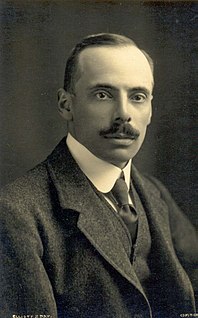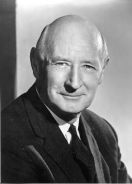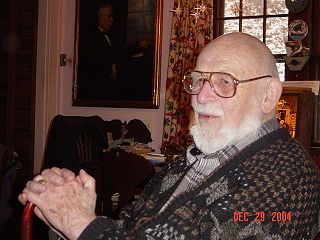 W
WAndrew Carnegie was a Scottish-American industrialist and philanthropist. Carnegie led the expansion of the American steel industry in the late 19th century and became one of the richest Americans in history. He became a leading philanthropist in the United States and in the British Empire. During the last 18 years of his life, he gave away around $350 million, almost 90 percent of his fortune, to charities, foundations and universities. His 1889 article proclaiming "The Gospel of Wealth" called on the rich to use their wealth to improve society, expressed support for progressive taxation and an estate tax, and stimulated a wave of philanthropy.
 W
WMelville Louis Kossuth "Melvil" Dewey was an influential American librarian and educator, inventor of the Dewey Decimal system of library classification, a founder of the Lake Placid Club, and a chief librarian at Columbia University. He was also a founding member of the American Library Association but resigned in 1905, due to allegations of sexual harassment, racism, and antisemitism.
 W
WAlexander John Ellis, was an English mathematician, philologist and early phonetician who also influenced the field of musicology. He changed his name from his father's name Sharpe to his mother's maiden name, Ellis in 1825, as a condition of receiving significant financial support from a relative on his mother's side. He is buried in Kensal Green Cemetery, London.
 W
WMontefiore Follick was a British Labour Party politician, a campaigner for spelling reform, polyglot and advocate of decimal currency. He was Member of Parliament (MP) for Loughborough from 1945 to 1955, having previously held the post of Professor of English at the University of Madrid in Spain. He had been adopted by the Loughborough Labour Party in 1936 as prospective parliamentary candidate but had a long wait because of the war years before being elected. In 1949 and again in 1952 he introduced private member's bills in the UK parliament for the reform of English spelling. He also bought the Loughborough Labour Party's current Building Unity House in 1947.
 W
WBenjamin Franklin was an American polymath who was active as a writer, scientist, inventor, statesman, diplomat, printer, publisher and political philosopher. Among the leading intellectuals of his time, Franklin was one of the Founding Fathers of the United States, a drafter and signer of the United States Declaration of Independence, and the first United States Postmaster General. As a scientist, he was a major figure in the American Enlightenment and the history of physics for his discoveries and theories regarding electricity. As an inventor, he is known for the lightning rod, bifocals, and the Franklin stove, among other inventions. He founded many civic organizations, including the Library Company, Philadelphia's first fire department, and the University of Pennsylvania. Franklin earned the title of "The First American" for his early and indefatigable campaigning for colonial unity, initially as an author and spokesman in London for several colonies. As the first United States Ambassador to France, he exemplified the emerging American nation. Franklin was foundational in defining the American ethos as a marriage of the practical values of thrift, hard work, education, community spirit, self-governing institutions, and opposition to authoritarianism both political and religious, with the scientific and tolerant values of the Enlightenment. In the words of historian Henry Steele Commager, "In Franklin could be merged the virtues of Puritanism without its defects, the illumination of the Enlightenment without its heat." To Walter Isaacson, this makes Franklin "the most accomplished American of his age and the most influential in inventing the type of society America would become."
 W
WDaniel Jones was a London-born British phonetician who studied under Paul Passy, professor of phonetics at the École des Hautes Études at the Sorbonne. He was head of the Department of Phonetics at University College, London.
 W
WSir Isaac Pitman was a teacher of the English language who developed the most widely used system of shorthand, known now as Pitman shorthand. He first proposed this in Stenographic Soundhand in 1837. He was also the vice-president of the Vegetarian Society. Pitman was knighted by Queen Victoria in 1894.
 W
WSir Isaac James Pitman, KBE was a British businessman, civil servant, publisher, politician and spelling reformer.
 W
WDr. Edward Rondthaler was a typographer as well as a simplified spelling champion and chairman of the American Literacy Council. He was critical to the development of SoundSpel. He was born in Bethlehem, Pennsylvania. A longtime resident of the village of Croton-on-Hudson, New York, Rondthaler became a centenarian in 2005.
 W
WTheodore Roosevelt Jr., often referred to as Teddy or his initials T. R., was an American politician, statesman, conservationist, naturalist, historian, and writer who served as the 26th president of the United States from 1901 to 1909. He previously served as the 25th vice president under William McKinley from March to September 1901, and as the 33rd governor of New York from 1899 to 1900. Having assumed the presidency after McKinley's assassination, Roosevelt emerged as a leader of the Republican Party and became a driving force for anti-trust and Progressive policies.
 W
WGeorge Bernard Shaw 26 July 1856 – 2 November 1950), known at his insistence simply as Bernard Shaw, was an Irish playwright, critic, polemicist and political activist. His influence on Western theatre, culture and politics extended from the 1880s to his death and beyond. He wrote more than sixty plays, including major works such as Man and Superman (1902), Pygmalion (1912) and Saint Joan (1923). With a range incorporating both contemporary satire and historical allegory, Shaw became the leading dramatist of his generation, and in 1925 was awarded the Nobel Prize in Literature.
 W
WThomas Spence was an English Radical and advocate of the common ownership of land and a democratic equality of the sexes. Spence was one of the leading revolutionaries of the late 18th and early 19th centuries. He was born in poverty and died the same way, after long periods of imprisonment, in 1814.
 W
WNoah Webster Jr. was an American lexicographer, textbook pioneer, English-language spelling reformer, political writer, editor, and author. He has been called the "Father of American Scholarship and Education". His "Blue-backed Speller" books taught five generations of American children how to spell and read. Webster's name has become synonymous with "dictionary" in the United States, especially the modern Merriam-Webster dictionary that was first published in 1828 as An American Dictionary of the English Language.